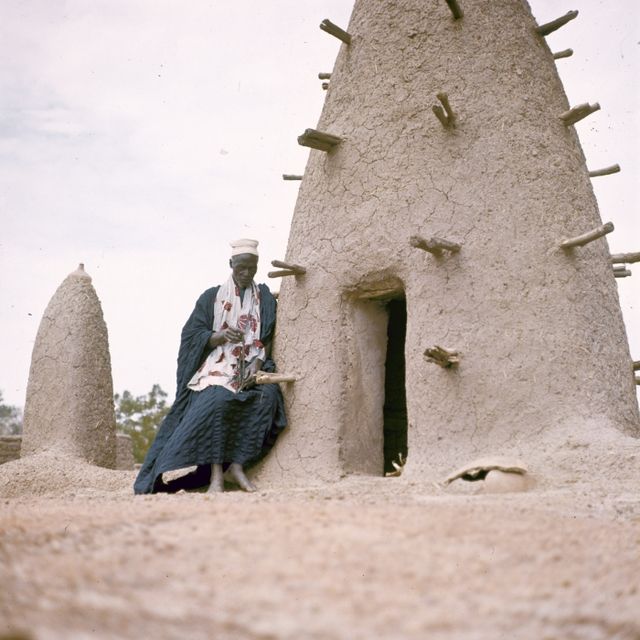Marabuto
From Wikipedia, the free encyclopedia
Remove ads
Marabuto (arabe مَربوط marbūṭ aŭ مُرابِط murābiṭ, "kiu estas ligita/gardita") estas islama religia estro kaj instruisto[1] en Okcidenta Afriko, kaj (historie) en Magrebo. La marabuto estas ofte fakulo de la Korano, aŭ religia instruisto. Aliaj povas esti vagantaj religiaj homoj kiuj survivas el almozoj, sufiaj murŝidoj ("gvidistoj"), aŭ estroj de religiaj komunumoj. Aliaj povas teni vivan sinkretismajn antaŭ-islamajn tradiciojn, kiaj amuletoj por bona sorto, prezidante je variaj ceremonioj, dirante futuron, kaj en kelkaj okazoj aktive gvidante la vivojn de la sekvantoj. La ofta praktiko ricevi donacojn aŭ monon pro tiu servo estis malaprobita de ortodoksai islamanoj.[1]



Pro etendo, marabuto estas ankaŭ Sanktejo sur la loko, kie tombokuŝas tia ermito.[2] Laŭ Francisko Azorín morabo (alternative) estas Tipa araba ermitejo.[3] Li indikas etimologion el la araba morabit (ermito), el mo + ribat (preĝejo).[4]
Remove ads
Referencoj
Bibliografio
Wikiwand - on
Seamless Wikipedia browsing. On steroids.
Remove ads
